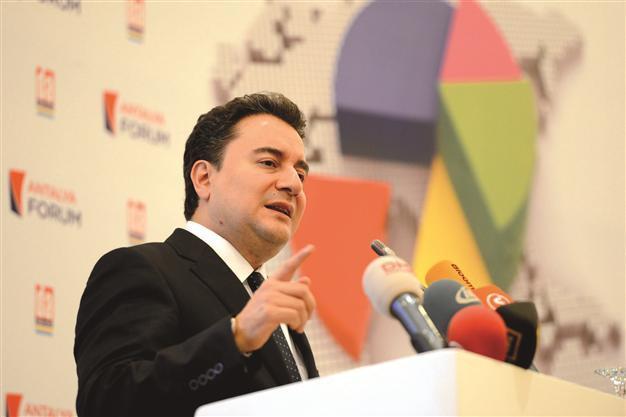Turkey cuts Iranian oil to obtain US exemption
ANKARA - Hürriyet Daily News

Deputy PM Ali Babacan says Turkey’s Tüpraş is consulting US officials about sanctions on Iran. AA photo
Turkey’s national oil company, Tüpraş, will further cut its purchases of oil from Iran by 20 percent in a bid to obtain another six-month exemption from the United States’ sanctions against Iran, the deputy prime minister has announced. The statement came a day before Turkey’s exemption from U.S. sanctions ends on Dec. 3.
“As far as I know, [Tüpraş] is reducing [the amount of oil] by another 20 percent. Talks on this have already been held,” Deputy Prime Minister Ali Babacan was quoted as saying by the daily Yeni Şafak newspaper on Dec. 2. According to Babacan, Tüpraş cut the oil it was purchasing from Iran by 20 percent in late March and could obtain a six-month long exemption from the sanctions against Turkey’s southern neighbor, which supplies nearly one third of its oil needs.
“Tüpraş is getting on with its work through consultations with the American side or supplying oil from other countries. As a matter of fact, this is not having an effect on us at the moment,” Babacan said.
Tüpraş sought deals with Libya and Saudi Arabia to meet its oil needs after it announced its decision to cut the purchased Iranian oil by 20 percent in late March. The move came as a result of a new U.S. law aiming to penalize foreign financial institutions over transactions with Iran’s central bank, which handles sales of the country’s key exports. Tüpraş received the exemption after its reduction of oil but it needs to renew this exemption every six months. U.S. law is imposing more pressure on Iran over its controversial nuclear program.
Terror financing law in early 2013Additionally, the U.S. is putting pressure on Turkey. Babacan said the government was still working on the ratification of an international convention on the protection and financing of terrorism. “The work is still ongoing. We will review these legal regulations in January and in the first half of February.” Turkey’s failure to ratify the U.N. Convention for the Suppression of the Financing of Terrorism is causing fierce criticism to come from both the U.S. and the European Union. The Financial Action Task Force (FATF) set Feb. 22, 2013 as the deadline for Turkey’s ratification of the convention if it does not want to be added to its black list. The task force has already extended the deadline twice in 2012.
Noting that the FATF provides a common legal base for preventing money laundering and the financing of terrorism, Babacan said, “We are expected to harmonize our legal system with international implementations within a certain timetable.”
